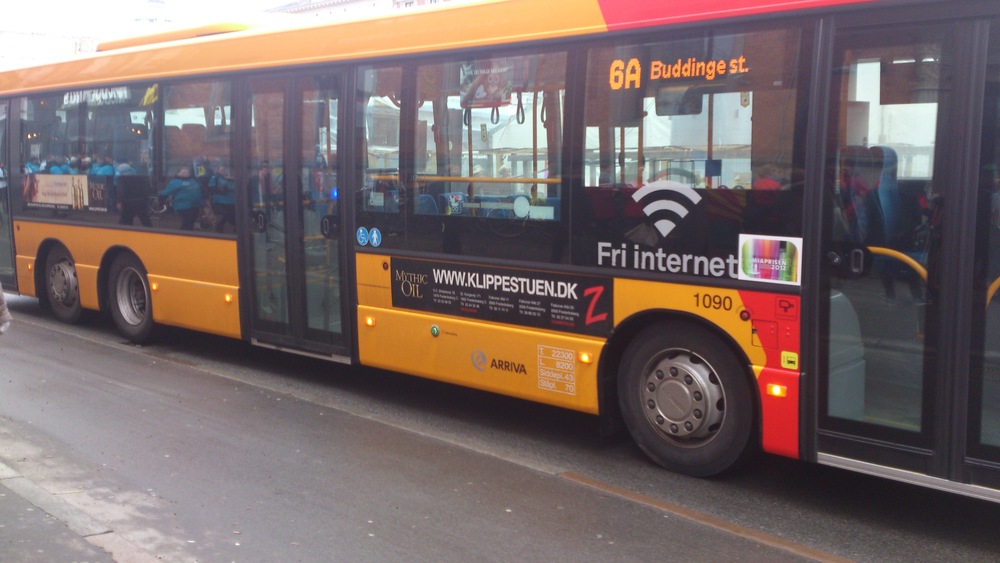 |
| Free bus internet, Copenhagen - Image courtesy of Billy Haworth |
There is probably an argument for the environment and climate change, with cities wanting to reduce the impact of auto-mobiles. But researching a little into the cities providing this service leads to the conclusion that the main drive behind free internet on public transport is customer satisfaction. Trials, surveys and pilot programs have been undertaken in a number of cities (E.g. Lisbon, Rome, Copenhagen, Dublin) with results all emphasizing the need to improve passenger's travel perception.
Scotland's Transport Minister said of Scotland's train wifi program:
“A major challenge for the transport industry is embracing new technologies to meet the demands of passengers and help them get on with their ever more busy lives while travelling. It is essential that people throughout Scotland have online access to enable our economy to thrive".
Danish rail company DSB state that free internet allows the train driver to continuously monitor various aspects of the trains performance and passengers to log on using laptops and smart phones, but outline being able to provide passengers with up to date information as the most beneficial outcome:
"The state-owned rail operator decided to equip all metropolitan S-trains in Denmark’s capital Copenhagen with wireless internet after a study revealed that real-time traffic information was the number one request among its daily 220,000 passengers".
rom the City's point of view it seems the main reason for free internet on public transport is to keep the citizens happy, and isn't that the City's main obligation? Perhaps with our modern digital lifestyle's free internet should be provided by the City. I'm not willing to go as far as saying it's their obligation, but I do think this trend will continue and more cities will be expected to offer free public transport wifi to keep their citizens 'happy'. Although, it seems this isn't what every citizen wants, and I'll leave you now with a quote from an online-commenter on Scotland's railway internet.
"Is there no escape. First it was idiots barking in brick-sized cellphjones in the 80s, then phones beep beeping all the time as TTTXXTTSS were snt 2 ol nd sndry ol t bldy tm, now we have computers being tap tapped, music played on them and always more noise. long haul flights used to be an oasis of calm but now they can use their phones and computers you might as well be at work. take a seat, look out the window, read the paper, chat to your fellow passengers, never mind Twitterbook, Face thingy or any of that antisocial netowrk rubbish, GET A LIFE"
This post originally appeared on urban culture and trends blog Trending City.
No comments:
Post a Comment